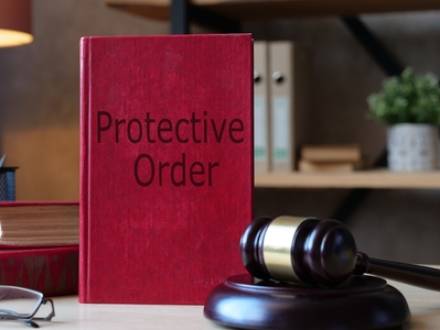Can My Wife Kick Me Out With a Restraining Order?
 Facing the possibility of being removed from your home due to a restraining or protective order can be angering and even scary. What does this mean for your relationship with your partner? Your kids? Can you even go home to get your stuff?
Facing the possibility of being removed from your home due to a restraining or protective order can be angering and even scary. What does this mean for your relationship with your partner? Your kids? Can you even go home to get your stuff?
In Texas, these legal tools are often used in family law or criminal cases to address safety concerns but they can unfairly target innocent people. Understanding the differences between a restraining order and a protective order — and the restrictions they impose — can help you navigate your rights and obligations, making sure you are able to fight an unfair order while not getting in further trouble.
If you are in this situation, an experienced Texas criminal defense attorney can provide guidance, build a strong defense, and help you protect your rights.
What Is the Difference Between a Restraining Order and a Protective Order in Texas?
Although the terms "restraining order" and "protective order" are often used interchangeably, they do not mean the same thing.
Restraining Orders
A restraining order is typically issued during civil cases, such as divorce or child custody disputes. These orders are not criminal in nature but are intended to prevent one party from engaging in certain behaviors that could harm the other party or disrupt the legal proceedings. For example, a restraining order may prevent you from selling marital property or contacting your spouse outside of court proceedings.
Protective Orders
A protective order, on the other hand, is specifically designed to address allegations of domestic violence, stalking, harassment, or threats. Protective orders are issued to protect a victim from immediate harm. Violating a protective order can have serious consequences, including criminal charges.
Can a Restraining or Protective Order Force You to Leave Your Home?
Both restraining and protective orders can restrict your access to your home under certain circumstances. If the court finds that allowing you to stay in the home poses a threat to the safety of your spouse or children, it can require you to leave and stay away.
Although less common, restraining orders issued during a civil case can also include provisions that prevent you from entering the marital home. For example, if your spouse claims that your presence would interfere with their safety or well-being, the court may grant such restrictions temporarily while the legal dispute is ongoing.
It is important to note that these orders are not automatically granted; your spouse must provide evidence to justify their request. However, if the court determines there is sufficient justification, you could be legally required to leave your home.
Can an Attorney Help Fight a Restraining or Protective Order?
If your spouse has filed for a restraining or protective order against you, hiring an attorney is essential for defending your rights and addressing any false or exaggerated claims. A criminal defense attorney can:
-
Review the evidence and accusations against you.
-
Represent you in hearings and argue that the order is not necessary or overly restrictive.
-
Work to negotiate alternative solutions, such as temporary visitation schedules or counseling, if appropriate.
-
Help change or lift the order if circumstances change.
If you have been served with a restraining or protective order, do not panic. Follow the terms of the order until it is lifted or changed. Then, call a lawyer before you do anything else, including trying to contact your partner to reason with them.
Contact a Decatur, TX Criminal Defense Attorney
If you are facing a restraining or protective order that could force you out of your home, act quickly. The Hays County, TX criminal defense attorney at Godwin Law Firm, PLLC can help you fight back against these allegations and ensure your side of the story is heard in court.
Call 940-255-0000 today to schedule a free consultation and learn more about your options. Do not face this legal challenge alone — get the guidance and support you need to protect your rights and future.








